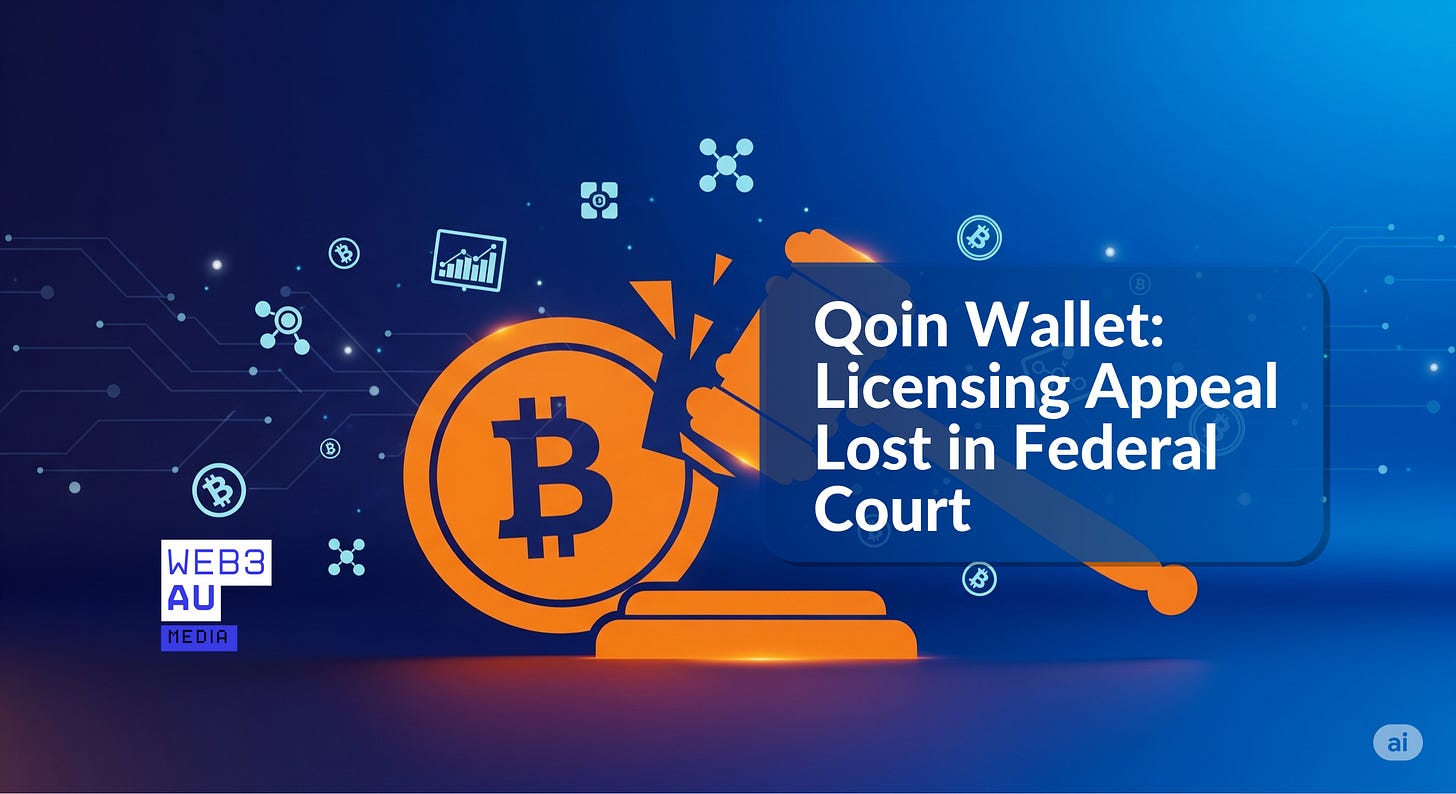Qoin Wallet: Licensing Appeal Lost in Federal Court
Future Operations in Doubt
According to ASIC Media Release (30 May 2025), In a significant development for digital asset regulation in Australia, the Full Federal Court today ruled in favour of the Australian Securities and Investments Commission (ASIC) in its appeal concerning BPS Financial Pty Ltd (BPS), the issuer of the Qoin Wallet. The Court found that BPS could not rely on the ‘authorised representative’ exemption under the Corporations Act when it issued the Qoin Wallet, a non-cash payment facility.
The core of the decision, delivered today, is that BPS was acting on its own behalf when issuing the Qoin Wallet, not as a representative of PNI Financial Services Pty Ltd (PNI), the Australian Financial Services (AFS) licensee BPS was an authorised representative of between 5 November 2020 and 30 August 2021. Consequently, the Full Court determined that BPS was required to hold its own AFS licence during this period for issuing the Qoin Wallet.
This ruling overturns an aspect of the Federal Court’s initial decision from 3 May 2024, which had found BPS was exempt from needing its own AFS licence while authorised by PNI.
ASIC had appealed this specific part of the earlier judgment. The Full Court, however, chose not to make a broader pronouncement on whether an issuer of a financial product can ever act in its own capacity while being an authorised representative, or if AFS licensees must always be directly involved in the issuance of financial products sold or promoted by their authorised representatives. This suggests the specifics of the BPS-PNI arrangement were central to the decision.
Background and Wider Implications
The original Federal Court decision on 3 May 2024, had already found that, outside the 10-month period it was authorised by PNI, BPS engaged in unlicensed conduct by issuing and providing financial advice about the Qoin Wallet without holding an AFSL. The Court also found BPS had engaged in misleading or deceptive conduct and made false or misleading statements regarding the Qoin Wallet.
The Qoin Wallet, used for transacting a digital asset called Qoin, was promoted to both retail consumers and businesses (Qoin Merchants). By September 2022, the Qoin Wallet had been issued over 93,000 times, with BPS receiving more than $40 million from the sale of Qoin Tokens.
Next Steps
The matter will now proceed to a penalty hearing, with the date yet to be scheduled. This case underscores the increasing scrutiny regulators are placing on financial product issuers in the crypto-asset space, particularly concerning licensing requirements and consumer protection.
ASIC continues to direct consumers to its Moneysmart website for information regarding the risks associated with investing in crypto-assets. This latest judgment serves as a critical reminder for all entities involved in issuing or promoting digital financial products in Australia to ensure strict compliance with AFS licensing obligations.


